Twenty years after Hurricane Katrina, New Orleanians still carry the weight—and the wisdom—of what the storm revealed. The lessons aren’t just about how to recover as floodwaters recede and levees get repaired, but about how power moves, who gets intentionally left behind, and what it truly takes to rebuild with equity, memory, and justice.
This understanding doesn’t come from theory—it comes from lived experience and years of watching how, in moments of crisis, policy decisions either deepen harm or create space for transformative change. I carry this perspective as a lifelong resident of New Orleans and from leadership roles as the CEO of the Louisiana Disaster Recovery Foundation (2007–2011), the Foundation for Louisiana (2011–2022), and now the Mary Reynolds Babcock Foundation.
I hold a clear-eyed understanding of how neoliberal policy has systematically undermined the majority of New Orleanians—and how disaster capitalism, in both natural and political crises, exploited the devastation of Hurricane Katrina at scale. These forces strike hardest when communities are most vulnerable—grieving, displaced, abandoned, and in survival mode—cloaking harm in the language of philanthropy, policy, and progress while stripping people of voice, land, and rights. What appears to some as recovery on the surface often masks a deeper consolidation of power that widens inequality and erodes the public good.
I also learned that when we funded and fought for an equity frame, communities reclaimed power, rebuilt with dignity, and reshaped outcomes to be more just. Those gains didn’t happen by chance—they resulted from intentional and courageous leadership, particularly from those of us who lost everything.
Today, coordinated attacks on voting rights, bodily autonomy, and basic dignity—especially targeting Black, brown, Indigenous, trans, migrant communities, and others long denied economic opportunity—amount to yet another disaster: political, economic, and climate-driven. As democracy itself is under siege and we are intentionally being torn apart, we face a choice: will we allow the same dynamics that followed Hurricane Katrina to define this moment, or will we rise to what a freedom frame demands?
Post-Katrina recovery quickly turned into a wholesale power grab, with disaster capitalism driving the agenda. Reformers fired thousands of Black educators, auctioned off public housing, and dismantled the public school system, replacing it with a patchwork of charter schools that lack accountability and democratic oversight. They carried out these actions under the banner of progress and against the protest of noted experts in student learning. Still, in reality, they advanced private interests at the expense of the public good, all while residents remained displaced and communities struggled to rebuild.
In the years immediately following Hurricane Katrina, for the first time in our nation’s history, the South received a proportionate share of philanthropic attention, and for a brief but powerful window, those investments permanently shifted the landscape. We built lasting infrastructure for democratic participation. Through leadership development, community members gained the skills and confidence to lead across nonprofit, civic, and public policy spaces. Organizers expanded democratic participation by leading get-out-the-vote campaigns, demystifying decision-making processes, and ensuring displaced residents had a voice in the city’s recovery planning. They also mobilized broad public engagement in New Orleans’ first citywide master plan in 50 years, using accessible toolkits, paid facilitators, and legal guidance to navigate zoning and land use, where power often hides. We reinforced that work by creating mechanisms for regular plan updates to ensure ongoing public accountability. At a time when few accepted it, New Orleanians recognized that equity wasn’t a zero-sum game—it was a path for everyone to thrive.
The transformation wasn’t magic—it was people-powered. The victories we won reshaped the landscape and proved that equity isn’t just aspirational—it’s replicable. We don’t need another crisis to remind us that equity-centered approaches work. When communities directly receive recovery dollars —when leaders prioritize local businesses, honor culture bearers, and include those most impacted in planning—we don’t just rebuild. We transform.
Transformation takes courage, demanding that we move beyond the performative politics of equity and invest, without hesitation, in the people who have always held the line. It means organizing not only where we’re comfortable, but across geographies, ideologies, and lived experiences. That’s precisely what our partners in Louisiana are doing through the Power Coalition for Equity and Justice—a statewide network building durable, people-centered power from Baton Rouge to the Bayous.
I remember funders coming to New Orleans after the storm, asking in disbelief how people were still standing. “I can’t imagine surviving what y’all have survived,” one said. And yet, we did because we were drawing not just from resources, but from memory. From the generational wisdom that says, Baby, we’ve seen worse. And we’re still here.
That’s the inheritance we carry. And that’s the compass we need now across this country. As we look to the South, we know how to survive this moment, too. The question is whether those with power and capital will finally choose to follow the lead of those who’ve already proven what equitable recovery looks like. What remains is the courage to act—and the time is now.
